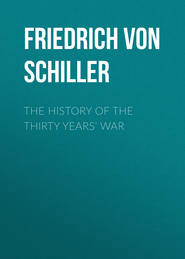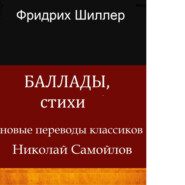По всем вопросам обращайтесь на: info@litportal.ru
(©) 2003-2025.
✖
The Thirty Years War — Volume 01
Настройки чтения
Размер шрифта
Высота строк
Поля
The Bohemians had begun to entrench themselves on the White Mountain near Prague, when they were attacked by the Imperial and Bavarian armies, on the 8th November, 1620. In the beginning of the action, some advantages were gained by the cavalry of the Prince of Anhalt; but the superior numbers of the enemy soon neutralized them. The charge of the Bavarians and Walloons was irresistible. The Hungarian cavalry was the first to retreat. The Bohemian infantry soon followed their example; and the Germans were at last carried along with them in the general flight. Ten cannons, composing the whole of Frederick's artillery, were taken by the enemy; four thousand Bohemians fell in the flight and on the field; while of the Imperialists and soldiers of the League only a few hundred were killed. In less than an hour this decisive action was over.
Frederick was seated at table in Prague, while his army was thus cut to pieces. It is probable that he had not expected the attack on this day, since he had ordered an entertainment for it. A messenger summoned him from table, to show him from the walls the whole frightful scene. He requested a cessation of hostilities for twenty-four hours for deliberation; but eight was all the Duke of Bavaria would allow him. Frederick availed himself of these to fly by night from the capital, with his wife, and the chief officers of his army. This flight was so hurried, that the Prince of Anhalt left behind him his most private papers, and Frederick his crown. "I know now what I am," said this unfortunate prince to those who endeavoured to comfort him; "there are virtues which misfortune only can teach us, and it is in adversity alone that princes learn to know themselves."
Prague was not irretrievably lost when Frederick's pusillanimity abandoned it. The light troops of Mansfeld were still in Pilsen, and were not engaged in the action. Bethlen Gabor might at any moment have assumed an offensive attitude, and drawn off the Emperor's army to the Hungarian frontier. The defeated Bohemians might rally. Sickness, famine, and the inclement weather, might wear out the enemy; but all these hopes disappeared before the immediate alarm. Frederick dreaded the fickleness of the Bohemians, who might probably yield to the temptation to purchase, by the surrender of his person, the pardon of the Emperor.
Thurn, and those of this party who were in the same condemnation with him, found it equally inexpedient to await their destiny within the walls of Prague. They retired towards Moravia, with a view of seeking refuge in Transylvania. Frederick fled to Breslau, where, however, he only remained a short time. He removed from thence to the court of the Elector of Brandenburg, and finally took shelter in Holland.
The battle of Prague had decided the fate of Bohemia. Prague surrendered the next day to the victors; the other towns followed the example of the capital. The Estates did homage without conditions, and the same was done by those of Silesia and Moravia. The Emperor allowed three months to elapse, before instituting any inquiry into the past. Reassured by this apparent clemency, many who, at first, had fled in terror appeared again in the capital. All at once, however, the storm burst forth; forty-eight of the most active among the insurgents were arrested on the same day and hour, and tried by an extraordinary commission, composed of native Bohemians and Austrians. Of these, twenty-seven, and of the common people an immense number, expired on the scaffold. The absenting offenders were summoned to appear to their trial, and failing to do so, condemned to death, as traitors and offenders against his Catholic Majesty, their estates confiscated, and their names affixed to the gallows. The property also of the rebels who had fallen in the field was seized. This tyranny might have been borne, as it affected individuals only, and while the ruin of one enriched another; but more intolerable was the oppression which extended to the whole kingdom, without exception. All the Protestant preachers were banished from the country; the Bohemians first, and afterwards those of Germany. The `Letter of Majesty', Ferdinand tore with his own hand, and burnt the seal. Seven years after the battle of Prague, the toleration of the Protestant religion within the kingdom was entirely revoked. But whatever violence the Emperor allowed himself against the religious privileges of his subjects, he carefully abstained from interfering with their political constitution; and while he deprived them of the liberty of thought, he magnanimously left them the prerogative of taxing themselves.
The victory of the White Mountain put Ferdinand in possession of all his dominions. It even invested him with greater authority over them than his predecessors enjoyed, since their allegiance had been unconditionally pledged to him, and no Letter of Majesty now existed to limit his sovereignty. All his wishes were now gratified, to a degree surpassing his most sanguine expectations.
It was now in his power to dismiss his allies, and disband his army. If he was just, there was an end of the war — if he was both magnanimous and just, punishment was also at an end. The fate of Germany was in his hands; the happiness and misery of millions depended on the resolution he should take. Never was so great a decision resting on a single mind; never did the blindness of one man produce so much ruin.

















